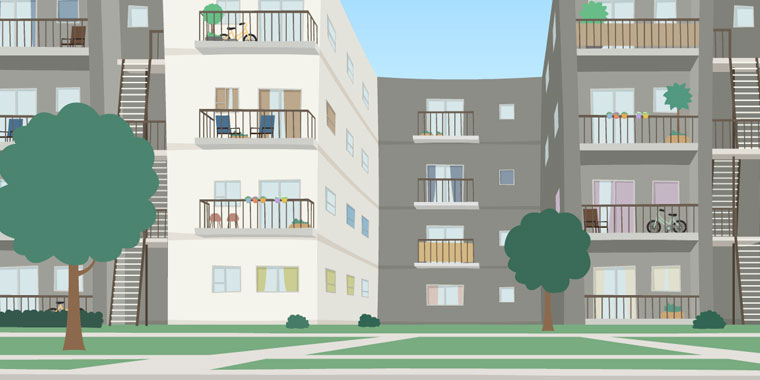Buying A Condo With An FHA Mortgage
January 15, 2025
FHA Condo Project Approval
The first challenge is to find a condo unit you like and make an offer to the seller. If the condo project isn't FHA-approved, you might be able to get an FHA loan through a Single-Unit Approval process, but this can be complex and take longer. Ask your loan officer about this option.
Loan Application and Financial Documentation
Once you confirm FHA eligibility, apply for the loan through an FHA-approved lender. You'll need to provide documents that show you can afford the loan, like proof of income, assets, and credit history. This usually includes recent pay stubs, bank statements, tax returns, and a credit report.
The lender will review these to assess your financial stability and creditworthiness.
Loan Processing and Condominium Project Review
After you apply, the lender will start processing your loan. The lender will also review the condo project's documents to ensure they meet FHA guidelines. This includes checking the project's finances, insurance, owner-occupancy ratio, and any legal issues affecting the property's value or ownership.
Underwriting and Conditional Approval
Next, an underwriter will review your loan file. The underwriter will assess your financial profile and the risk associated with the condo project. They will check your finances, the appraisal, and the condo project's docs to ensure everything meets FHA requirements.
If the underwriter decides that you and the condo project meet FHA standards, they will give you conditional approval. This means you'll need to meet certain conditions, like providing more documentation or addressing issues found in the appraisal or condo project review.
Fulfillment of Conditions and Final Approval
You'll work with the lender to meet the conditions of the conditional approval. Once you meet all the conditions, the underwriter will approve and authorize the final loan documents.
Closing Preparation and Documentation
The lender will prepare the closing documents, including the mortgage note, deed of trust, and closing disclosures. You must review and sign these before closing.
Closing and Ownership Transfer
The closing is usually at a title company or attorney's office. You'll sign the final loan documents, pay closing costs, and prepay some items like property taxes and homeowners insurance. After signing and paying, you'll officially own the condo.
An FHA loan can be a great way to finance a condo purchase. To help ensure a smooth and timely closing, keep in touch with your lender, meet all conditions, and stay organized.

FHA Loan Articles
November 4, 2023In May 2023, USA Today published some facts and figures about the state of the housing market in America. If you are weighing your options for an FHA mortgage and trying to decide if it’s cheaper to buy or rent, your zip code may have a lot to do with the answers you get.
October 14, 2023FHA loan limits serve as a crucial mechanism to balance financial sustainability, regional variations in housing costs, and the agency's mission to promote homeownership, particularly for those with limited financial resources.
September 25, 2023Mortgage rates are hitting prospective homeowners hard this year and are approaching 8%, a rate that didn't seem very likely last winter. With so many people priced out of the market by the combination of high rates and a dwindling supply of homes.
September 19, 2023The FHA Handbook serves as a crucial resource for mortgage lenders, appraisers, underwriters, and other professionals involved in the origination and servicing of FHA-insured home loans. It outlines the policies and requirements for FHA-insured mortgages.
September 13, 2023FHA rehab loans are a specialized type of mortgage loan offered by the Federal Housing Administration that allows borrowers to finance both the purchase or refinance of a home and the cost of needed repairs.







